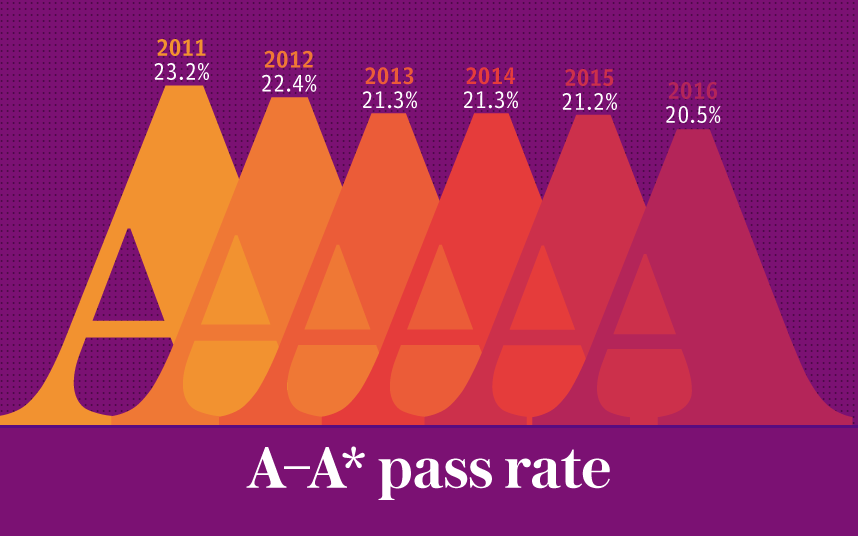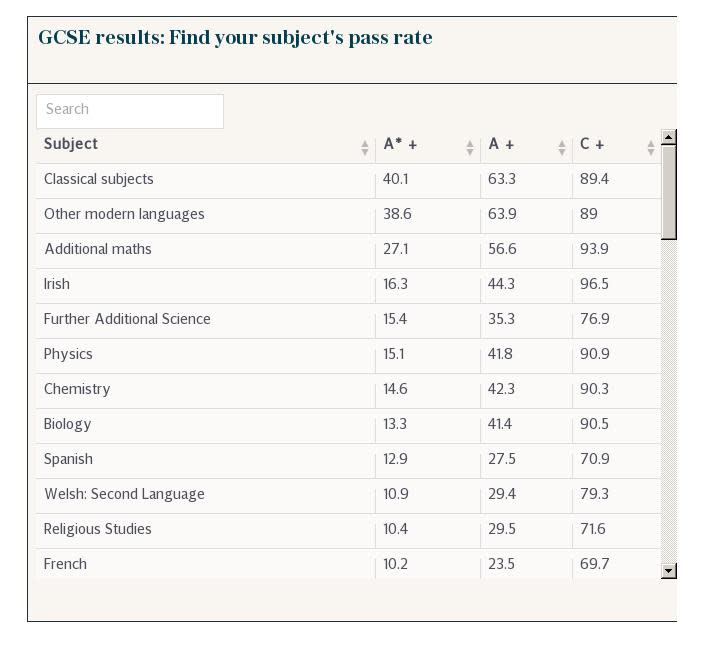What subjects did students do best and worst in on GCSE Results Day 2016?

The pass rate for the top grades has fallen again this year, as GCSE students from across the UK find out how they've performed on Results Day.
Some 20.5 per cent of students across all subjects received an A* or A, falling from 2011 when the pass rate for the top grades stood at 23.2 per cent. This trend is also mirrored in A level results.
Students have performed well in classical subjects and additional maths, while those taking engineering and science have struggled to gain the top grades of A* and A.
Meanwhile, there are concerning patterns revealed in the number of boys and girls taking particular GCSEs in 2016, with boys taking construction and engineering courses while girls opt for home economics and social care.
The best performing GCSEs
GCSE students have excelled in classical subjects and additional maths, with more than half getting an A* or A.
These subjects were also the best performing in 2015, continuing their success in achieving the top grades.
Two out of every five students taking classical subjects gained an A* this year - the highest of any subject in the UK.
Additional maths hasn't always been so successful. The proportion of its students reaching the best grades has soared in recent years - from 29.9 per cent in 2011 to 56.6 per cent in 2016.
This makes it the most improved GCSE for achieving A* or A grades between 2011 and 2016.
Other GCSEs to see significant improvements include construction, manufacturing and Welsh.
The worst performing GCSEs
On the other hand, students struggled to achieve A* and A grades in engineering and science, which saw the lowest pass rates for top grades in both 2015 and 2016.
Just 0.9 and 0.7 per cent of students received an A* in these subjects in 2016, respectively.
The largest falls in A* - A pass rate since 2011 were seen in ICT and chemistry.
In a worrying sign for STEM subjects, the five subjects with the largest falls in attaining top grades since 2011 have all been in the science and technology areas.
The gender gap is there from a young age
Gender gaps seen across subjects start from a young age, with construction being dominated by boys and girls flocking to health and social care.
Boys account for around nine in 10 students in subjects such as construction, engineering and computing, leading to a knock-on effect in future education and career choices.
The subjects with the highest proportion of girls are health and social care and home economics - continuing a trend seen for several years.
Which subjects are students taking?
There has been a significant increase in the number of students taking subjects such as engineering and ICT in recent years.
This is a trend that seems to be continuing into students' A level choices, with computing being the A level with the biggest increase in entries since 2011.
Humanities and additional maths have seen their number of entries fall the most since 2011.
Find the results of your GCSE subject


 Yahoo News
Yahoo News 
